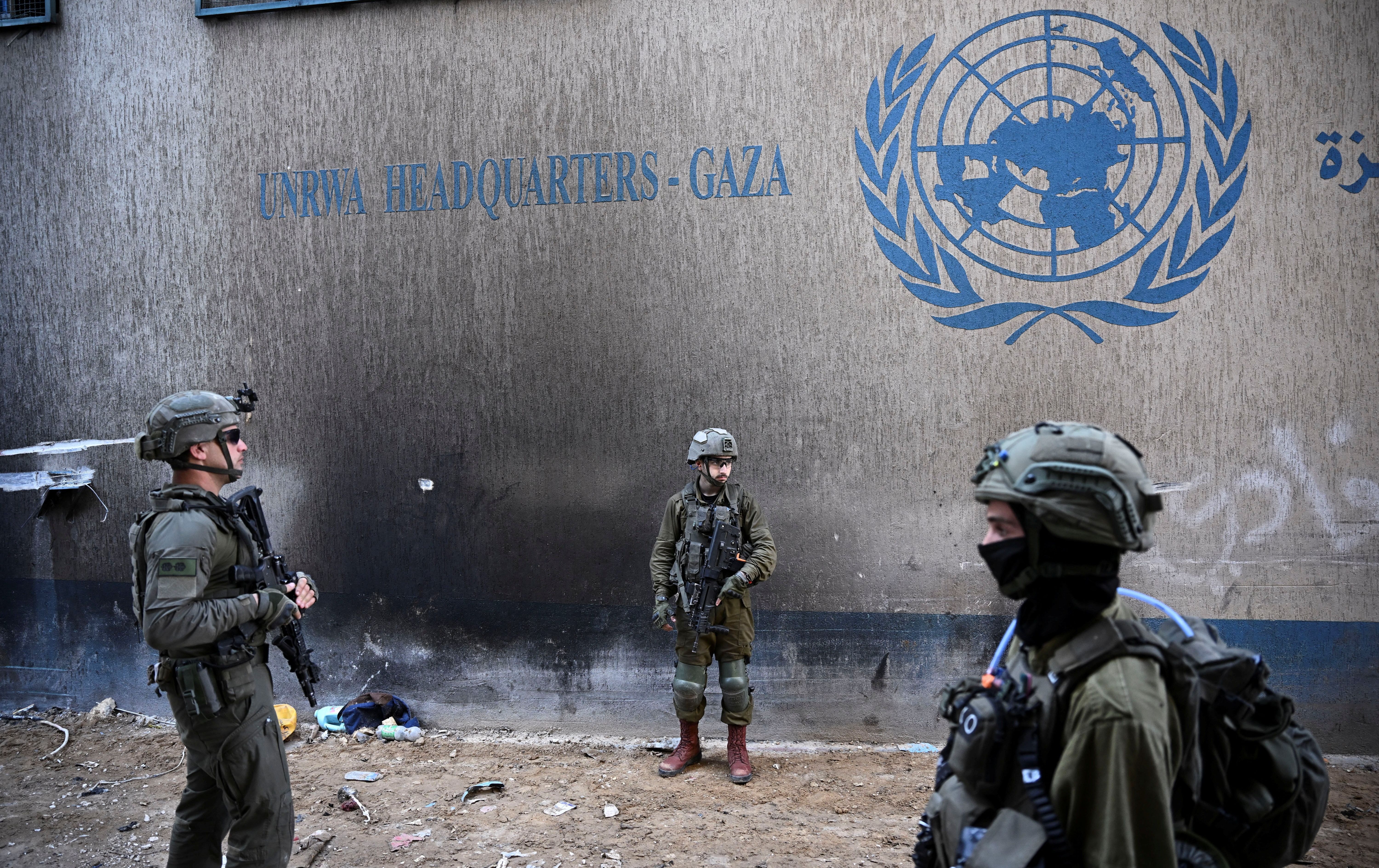The U.S. intelligence community has found Israel’s claims that employees of a U.N. aid agency took part in Hamas’s Oct. 7 attack to be plausible, but it cannot conclude more definitively because it has not been able to independently verify the charges, according to new reporting from the Wall Street Journal.
The Israeli government charged last month that 12 staffers at the United Nations Relief Works Agency (UNRWA) — which facilitates humanitarian aid to Palestinains throughout the region — either participated or assisted in the Hamas-led atrocities and that others have close ties to the terror group.
UNRWA fired the 12 employees and donor counties, including the United States, have since paused funding, moves that have increasingly become more controversial as the Israeli government has yet to provide clear evidence for its claims. The agency says it will soon run out of money amid the humanitarian crisis in Gaza.
According to the Journal, the U.S.’s National Intelligence Council assessed with “low confidence” that a small group of UNRWA staffers participated in the attack. The intel assessment, the Journal reports, “doesn’t dispute Israel’s allegations of links between some staff at Unrwa and militant groups” and that, according to U.S. officials, “Israel hadn’t shared the raw intelligence behind its assessments with the U.S., limiting their ability to reach clearer conclusions.”
"This assessment casts further significant doubt on the veracity of Israel's claims against UNRWA, which remain allegations without confirmed substantiating evidence,” Chris Gunness, a former UNRWA spokesman and now Director of the Myanmar Accountability Project, told RS. "If Israel has allegations against UNRWA, it should hand them over to the internal and external investigations currently underway: one by the U.N.'s Office of Internal Oversight and the other headed by a former French minister. Only when the information has been authoritatively assessed should anyone draw conclusions.”
For years, factions on the right in Israel, along with their supporters in the United States, have been working to close down UNRWA with the apparent belief that the U.N. agency lends credibility to Palestinians' assertions of ownership over land Palestinians argue was taken by Israel. UNRWA also regularly submits a roster containing the names of its staff to the Israeli government, which in turn signs off.
“Those donors who based their decisions to defund UNRWA on unconfirmed information should restore funding and only take a decision when they have a proper understanding of what took place,” Gunness added.
- US wants Turkey to pick up its UNRWA tab: Report | Responsible Statecraft ›
- UNRWA at the brink | Responsible Statecraft ›
- US, UN question Israel ban on aid org helping Palestinians | Responsible Statecraft ›
- 'Terrorism'? Israel has weaponized the charge for decades | Responsible Statecraft ›
- Official US Govt report says Hamas not infiltrating UNRWA | Responsible Statecraft ›
















